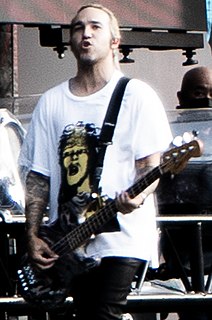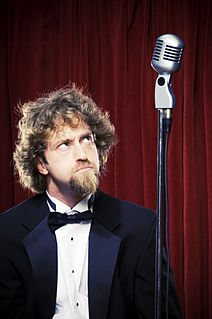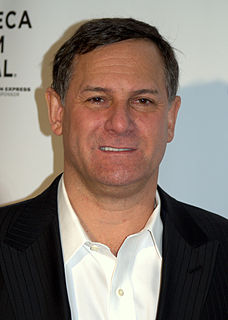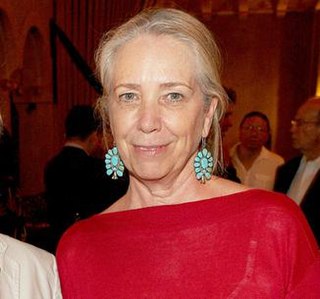A Quote by Jonathan Safran Foer
I often think about how my sons will come to know about September 11th. Something overheard? A newspaper image? In school? I would prefer that they learn about it from my wife and me, in a deliberate and safe way. But it's hard to imagine ever feeling ready to broach the subject without some impetus.
Related Quotes
Many people will tell you that an expert is someone who knows a great deal about the subject. To this I would object that one can never know much about any subject. I would much prefer the following definition: an expert is someone who knows some of the worst mistakes that can be made in the subject, and how to avoid them.
Being a nerd, which is to say going too far and caring too much about a subject, is the best way to make friends I know. For me, the spark that turns an acquaintance into a friend has usually been kindled by some shared enthusiasm . . . At fifteen, I couldn't say two words about the weather or how I was doing, but I could come up with a paragraph or two about the album Charlie Parker with Strings. In high school, I made the first real friends I ever had because one of them came up to me at lunch and started talking about the Cure.
If educators were really understanding of that, they'd say, "You know what? Forget about bilingual, we're going to do multilingual education." So children are ready for the new millennium. We're way behind compared to countries in Europe. If we were multilingual, imagine how much you would learn about your own culture, about the sensibilities of what's important in your own culture.
To me, the newspaper business was a way to learn about life and how things worked in the real world and how people spoke. You learn all the skills - you learn to listen, you learn to take notes - everything you use later as a novelist was valuable training in the newspaper world. But I always wanted to write novels.
I think you reveal yourself by what you choose to photograph, but I prefer photographs that tell more about the subject. There's nothing much interesting to tell about me; what's interesting is the person I'm photographing, and that's what I try to show. [...] I think each photographer has a point of view and a way of looking at the world... that has to do with your subject matter and how you choose to present it. What's interesting is letting people tell you about themselves in the picture.
And, Joey, if you ever want to know about the japonicas and the daisy fields it will be alright that you have forgotten because I will be able to tell you about how it felt to be feeling that way you cannot quite remember – that will be for the time when something happens years from now that reminds you of now.
In December of 2001, after September 11th, my wife, Jane Rosenthal, and Robert DeNiro asked me if I would help them create the Tribeca Film Festival. The idea was to revitalize lower Manhattan. We would show films on piers, in high schools. It was all about the community. We wanted it to be accessible to everybody.
I think if I were reading to a grandchild, I might read Tolstoy's War and Peace. They would learn about Russia, they would learn about history, they would learn about human nature. They would learn about, "Can the individual make a difference or is it great forces?" Tolstoy is always battling with those large issues. Mostly, a whole world would come alive for them through that book.
If children are given some real content, they can feel powerful with their own understanding of it. I think a movie like 'Indian in the Cupboard' will instruct them how to proceed as people. They can think about whether they would have done something the way a character did, how they would have felt about an event in the story.
You know what I was thinking about on my way home? How different my life would be if you’d made that gash a little deeper. Or how different yours would be if I’d vaulted myself off a roof nine years ago. Do you ever think about things like that? Like, if either you or I wouldn’t have made it, where would the other one be right now? It was something I thought about all the time: how death changes every remaining moment for those still living.
Pearl Jam is a band I have a lot of respect for. Nirvana and Sonic Youth I feel the same way about. Mumford & Sons, My Morning Jacket, Wilco, Givers, and Foo Fighters are just some of my favorites. I respect bands that give me something of themselves that I can feel. ("Posing" bands turn me off generally speaking.) It all has to do with a feeling I have about them. That is what music is to me, a feeling. It's similar with people too.







































